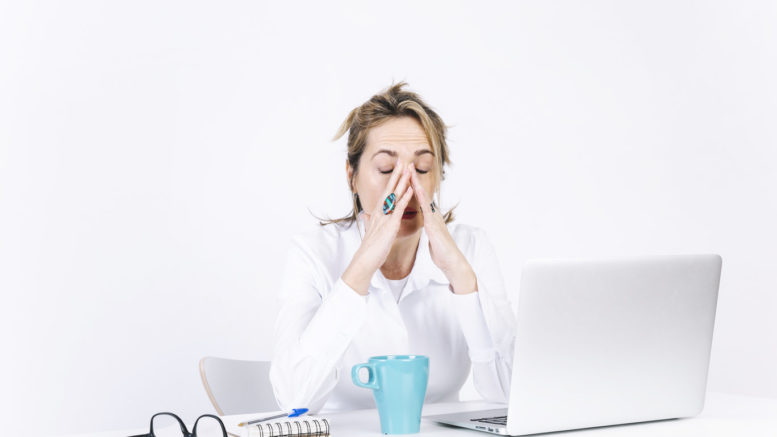As the world deals with the COVID-19 pandemic, various measures have been put in place by governments to contain the disease’s spread. For most countries, this has mainly come in the form of shelter-in-place orders or full lockdowns. Under these conditions, only essential workers are allowed to leave their homes, with other citizens being forced to stay at home in varying states of employment. Similarly, some people may also choose to self-quarantine as a precaution if they feel that they may have been inadvertently exposed to an infected person.
Unfortunately, this situation can lead to a wide variety of health problems for people who are forced to hole up inside their homes. Indeed, the current pandemic may have effects beyond infecting vast groups of people with a severe respiratory disease. This is because the resulting disruption of daily life can have various effects on a person’s mental and physical wellbeing. Mainly, the intense isolation can prove to be a huge source of stress and anxiety. This can then translate to an increased risk of experiencing depression and stress-related fatigue.
Thankfully, it’s possible to address some of these issues through a three-pronged approach. Read on to know more about three simple ways to stay healthy during a pandemic.
Ensure You Can Get Enough Regular Sleep
Unfortunately, one of the most critical processes that can be affected by long-term isolation is our circadian rhythm—a vital process that allows us to maintain our normal sleeping schedules. This is because of certain key factors such as reduced exposure to natural light, an increased likelihood of oversleeping, as well as other stress-related issues.
However, it’s important to remember that having enough sleep can have important health benefits—especially during a pandemic. These can include a more robust immune system, sharper brain function, as well as improved overall mental health. Luckily, there are easy ways to ensure that you have the right amount of sleep you need on a daily basis. If you are looking for a place to buy quality pajamas make sure to check out Eberjey.
One way to do this is by keeping a regular daily schedule of activities. This could be as simple as setting specific wake-up and wind-down times, in addition to a consistent nightly bedtime. Then, it will also help to get as much natural light as possible, so leave your windows and blinds open to let in as much of the sun’s rays while it’s up.
Once it’s time for bed, make sure you’re as cozy as possible. To do this, you can wear your most comfortable men’s pajamas or women’s sleepwear to better prepare your body for sleep. All in all, these quick measures can help you fall asleep more naturally and get the right amount of rest you need on a daily basis.
Get as Much Exercise as You Can
Generally speaking, exercising can greatly improve your overall health. But if your daily movements are affected by an ongoing shelter-in-place order, you’ll want to counter the lessened activity by exercising as much as you can.
Ensuring that you get some regular exercise is key during a pandemic. This is because exercising is known to release hormones known as endorphins. Aside from decreasing our perception of pain, they can also help provide a sudden rush of happiness and other positive feelings. This can be especially helpful when you’re struggling to cope with the troubling times. Exercising can also minimize the risk of developing certain types of heart diseases and cancers, as well as help you maintain optimal bone density levels.
However, it will also be best to keep in mind that choosing a workout time that’s too close to your bedtime might inadvertently affect your sleep schedule. It’s most ideal to exercise right after you wake up, in the late afternoon, or in the early evening.
Follow a Healthy Diet
If maintaining a healthy diet was already important for staying healthy before, then it should be even more so during a pandemic. After all, eating well is vital for ensuring that your immune system is strong enough to resist infections. And conversely, the more isolated nature of our daily schedules while self-quarantining or sheltering in place can make it easier to over-eat or indulge in unhealthy snacks. So it’s important to make sure you’re following a healthy diet as much as possible.
Basically, you should do what you can to continue eating 3 satisfying meals per day. This helps maintain your digestive system’s natural rhythm, and it also helps you maintain a more regular sleeping pattern. Aside from keeping your diet as balanced as possible, taking in antioxidant-rich beverages such as certain fruit juices and teas can also keep you healthy.
While you’re locked down or even if you’re just self-quarantining, you might want to refrain from consuming alcohol. Though it might be a fun way to let off some steam, remember that alcoholic beverages are still naturally toxic substances that increase the risk of developing certain liver- and kidney-related conditions, among many other diseases. With hospitals and clinics at their limit, you might not want to risk developing any alcohol-related condition during a pandemic.
Conclusion
While an effective vaccine is yet to be developed for COVID-19, the best that everyone can do is to help mitigate its spread by staying indoors and refraining from unnecessary person-to-person contact. It can’t be denied that these safety measures will end up having their own negative effects on everyone’s physical and mental health. However, by simply focusing on getting the right amount of sleep, regular exercise, and a healthy diet, it’s possible to stave off the worst that long-term isolation can bring.
